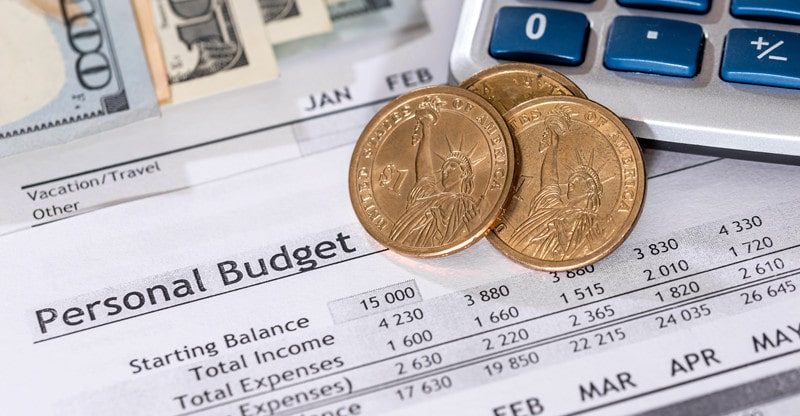Create An Effective Personal Budget With These 6 Simple Steps
Creating and sticking to a budget can be challenging, but it’s crucial for financial health. These six simple steps can help you make an adequate personal budget that will work for your unique circumstances. With some planning and discipline, you can get your finances on track and reach your financial goals.
Know your income and expenses – track everything for at least one month to get an accurate picture.
Knowing your income and expenses is the first step in creating an effective personal budget. To better understand your finances, track every single transaction you make for at least one month to establish the groundwork for your budget going forward and discover where you can safely optimize your spending habits.
Additionally, ‘unexpected’ expenses can be detected over this period as well, allowing you to account for them accordingly.
Determine your financial goals – do you want to save for a house, a car, or retirement?
When creating an effective personal budget, it’s important to establish financial goals. Do you want to save for a house, a car, or retirement? Maybe, you’d like to do all three! Setting these goals will help you adjust your personal budget accordingly. Considering all of your wants and needs will allow your personal budgeting experience to be the most successful it can be.
Ultimately, the goal is to fulfill each personal need while also achieving economic stability in the process. So remember to factor in specific criteria, such as income sources and fixed expenses, to stick to your personal budgeting plan when seeking methods to reach your financial goals.
Make a list of all your debts and their interest rates – prioritize which ones to pay off first.
Prioritizing debts can seem intimidating, but it’s one of the most essential steps when putting together a personal budget. Having a good understanding of your debts – including the amount owed and interest rates – allows you to prioritize which debts should be paid off first in order to maximize your savings.
When listing out your debts, consider consolidating multiple loans into one where possible, as this will give you an easier-to-manage single payment. From there, look closely at the interest rate on each loan to determine what should be tackled first: those with higher interest rates have more potential for saving in the long term compared to lower-interest loans. Armed with this information, you’ll better know how best to allocate your money and which debt should take priority when paying down.
Create a budget that allocates funds for essential expenses, savings, and debt repayments.
Creating a budget that best fits your financial needs and priorities can be daunting, but it doesn’t have to be. The key is to start small and work your way up. Begin by calculating your income and expenses. Ensure you include essentials like rent or mortgage payments, food, transportation, healthcare costs, credit card repayment plans, or debt amounts owed. Allocate an amount for savings that can help build a financial cushion in case of emergencies.
Consider setting aside a portion of what you make monthly instead of lumping it all into one payment. Set realistic goals for yourself and adjust these smaller savings targets as needed for continual progress toward your ultimate goal! A solid budget plan with these steps at the helm will surely get you on track for financial success in no time!
Review your progress regularly and make changes as necessary – be flexible!
Keeping track of your expenses and income is only the beginning! Reviewing your budget frequently and making necessary changes as circumstances evolve is essential. By monitoring how you are tracking against your budget, you will be able to know when it’s required to make adjustments. These could include reviewing your spending habits, so they fit within available funds, allocating more money for particular needs, or setting up automatic payments for essentials such as rent or utilities.
Above all else, remember that budgets are fluid tools that should be adjusted as needed to achieve your financial goals. Being flexible with your budget is the key to success!
Having an emergency fund in case of unforeseen circumstances will help you stay on track overall.
Starting an emergency fund is an essential part of having a successful budget. Unexpected expenses often arise, and you don’t want them to interfere with your carefully planned budget. Having an emergency fund in place allows you to mitigate the risk of any upcoming surprises by providing a buffer for your bank balance in case of unexpected circumstances.
This will help you stay on track with both short-term and long-term financial goals and ensure that your hard work pays off in the future. Even if it’s just a small amount at first, setting aside a portion of your income for emergencies can make all the difference in feeling more financially secure.
Creating an effective budget can be daunting, but it’s an essential step for achieving financial stability. Following these key steps will make the process easier and give you an accurate overview of your finances. Doing so will ensure a successful personal budget that will provide you with lasting rewards.



